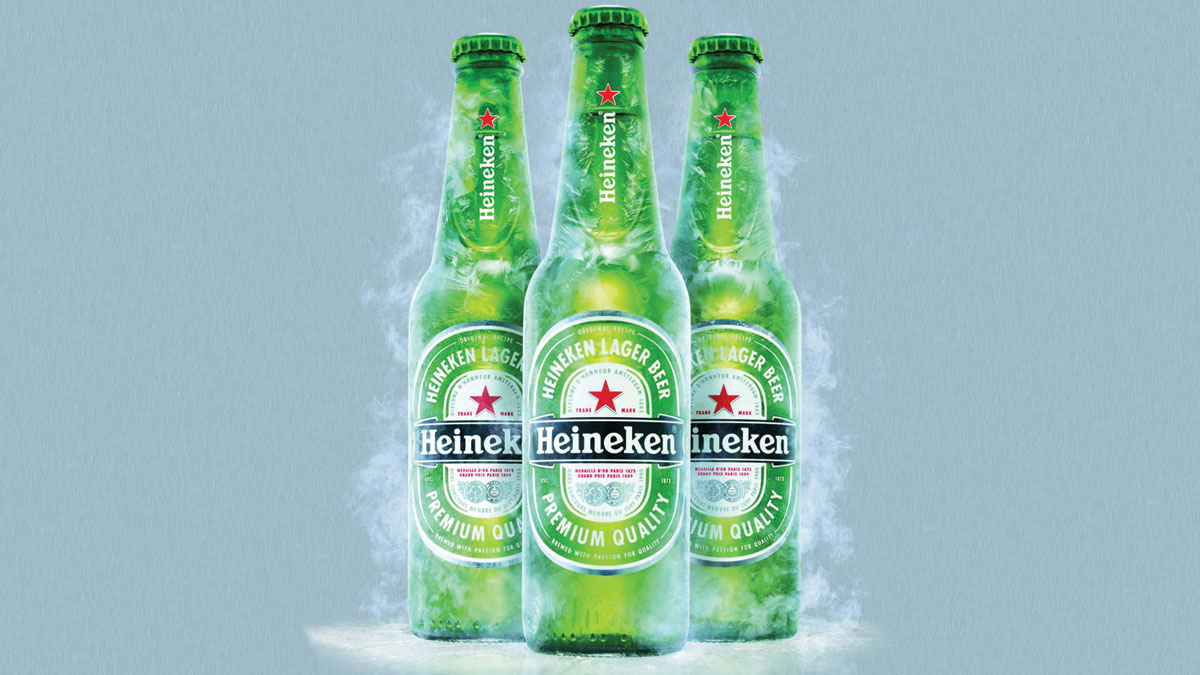
The brewer has brought relief to Punch’s “long-suffering” investors, but competition concerns remain, says Ben Judge.
Dutch brewer Heineken and London-based real-estate investment firm Patron Capital have agreed a joint £400m takeover bid for Punch Taverns, Britain’s second-biggest pubs group. Punch, which made a £60m pre-tax profit in its last financial year, has been struggling under a huge debt load. It has almost halved this over the past three years by selling property and rejigging its pub leases, but still owed £1.36bn in August this year. The offer of 180p a share represents a 40% premium on the closing share price the day before the offer was made.
The 3,350 pubs – which are split into two portfolios – will be bought by Vine Acquisitions, a vehicle established by Patron Capital and 1,900 of them will then be transferred to Heineken, with Patron taking the remainder. Heineken already operates more than 1,000 pubs under its Star Pubs & Bars arm, which it acquired when it took over Scottish & Newcastle. The deal will make it Britain’s third-largest pub landlord, after Greene King and Enterprise Inns.
With Punch’s share price having fallen by more than 99% since its 2007 high, the offer is “a gift for long-suffering investors”, says Kate Burgess in the Financial Times. The board “wasted little time” in recommending the bid, despite a higher offer of 185p a share from Emerald Investment Partners, set up by one of Punch’s founders, Alan McIntosh.
Punch’s three largest investors, Glenview Capital, Avenue Capital and Warwick Capital Partners, which together own 52.3% of the pub holding company, “have long wanted out” and were “equally quick” to accept the offer. Emerald, adds Burgess, “has yet to prove it has the financial backing” to make the bid, and would have to offer £2-plus a share “to release those who have pledged support for the Heineken-Patron axis”.
“On the surface”, says Jim Armitage in the Evening Standard, Heineken’s bid “looks like it makes most sense” out of the two. But it would “inevitably be held up by competition concerns”, given Heineken’s ownership of Star. Remember that “MPs spend a lot of time listening to barmen complain about their lot”, which means that pub holding companies “are regularly kicked around by Westminster’s boozier members”.
Heineken “could use its scale within the market to undercut prices from competitors”, says Jillian Ambrose in The Daily Telegraph. And the deal could mean the disappearance of “England’s most popular beer” from the transferred pubs, says Peter Evans in the Times, with Molson Coors’ Carling likely to be replaced by Heineken and Fosters. According to one industry chief executive, Heineken “has Molson Coors by the balls”.
Bids & deals: multi-million windfall for fiver firm
Cumbria’s Innovia, the firm that makes the UK’s new plastic £5 note, has been bought by Canada’s CCL for C$1.13bn (£680m). CCL, which is based and listed in Toronto, employs 20,000 people in 35 countries, making polymer labels and packaging materials. The sale represents a “multimillion-pound windfall” for Innovia’s private-equity investors, who bought it shortly after it was awarded the Bank of England contract to produce the fiver, notes Ben Chapman in The Independent.
Lead investor Smithfield Group made a profit of 3.6 times its initial stake; Electra Partners scooped 3.2 times its money. Innovia recently became embroiled in controversy after it was revealed that its £5 note contains a small amount of tallow, an animal fat. Vegans objected and the firm is currently looking for an alternative material to replace it.
The firm previously hit the headlines in 2009, when employees of a firm then jointly owned by Innovia and the Australian central bank, were accused of paying “millions of dollars to well-connected middlemen” to secure banknote supply contracts, according to The Age, an Australian newspaper. As far as CCL is concerned, the purchase should “propel the company to world leadership in the disruptive, fast-growing polymer banknote market”, according to CEO Geoffrey Martin. Innovia is the top supplier of polymer bank notes, which are deemed to be more secure than paper ones.
City diary
• The Pensions Regulator has “fired a warning shot” at Philip Green, says Graham Ruddick in The Guardian. It has forced Coats, the maker of thread and zips, to pay more than £225m into its pension scheme. The regulator wants £250m from Green after he left BHS with a £571m deficit in its scheme. Green “promised MPs he would sort the problem”, says Ruddick, “but a deal has yet to be agreed”. The Coats deal “should make Philip Green feel very, very uncomfortable”, independent consultant John Ralfe told the FT. As with BHS, the parent company has no legal obligation for the subsidiary’s pension scheme and there has been no obvious breach of the rules – yet the regulator squeezed Coats anyway.
• Peter Cruddas, ex-treasurer of the Conservative Party, was such an enthusiastic backer of the Leave campaign in the EU referendum that he donated £1m to the cause. Now the company he founded, spread better CMC Markets, could be set to move to Berlin, says Alex Ralph in The Times, after the Financial Conduct Authority began a crackdown on the sector – something the German regulator has not done. Cruddas netted over £200m from the initial public offering of CMC markets, and still owns around 60% of the shares.
• For ailing social media giant Twitter, 2016 is ending as it began – with the departure of some of its top executives. January saw at least four leave, including the head of the engineering division. Last month the chief operating officer stepped down. Now two more are on their way, says Kathleen Chaykowski on Forbes.com. Chief tech officer Adam Messinger is to leave, and “VP of Product” Josh McFarland tweeted that he is to “take some time off”. It’s another blow to the firm that tried to sell itself earlier this year, but failed after it turned out nobody was interested.